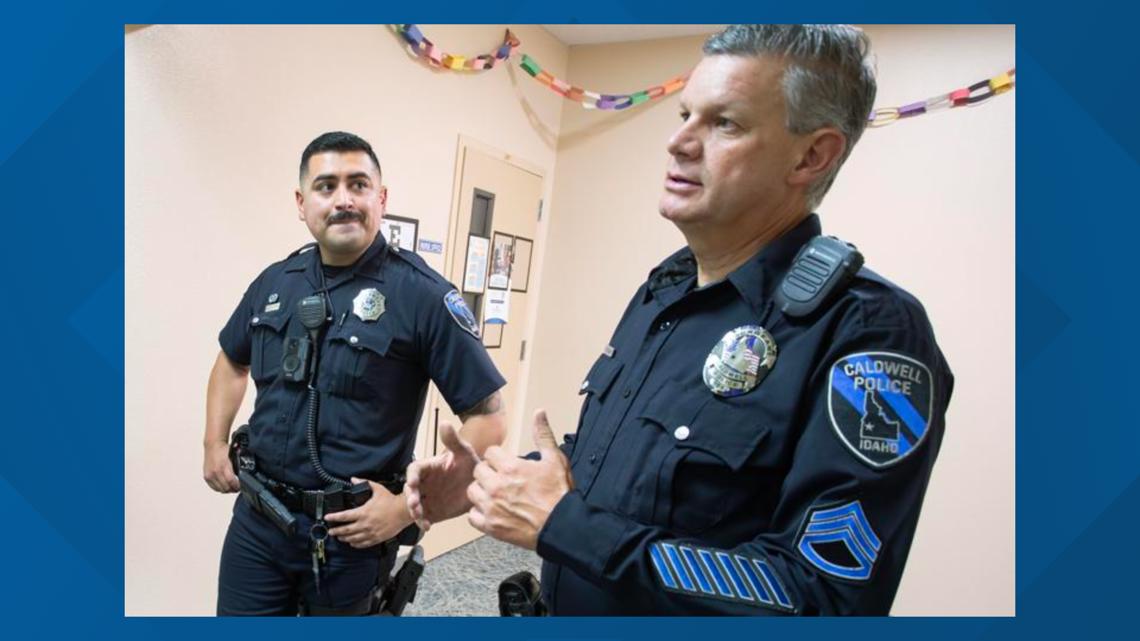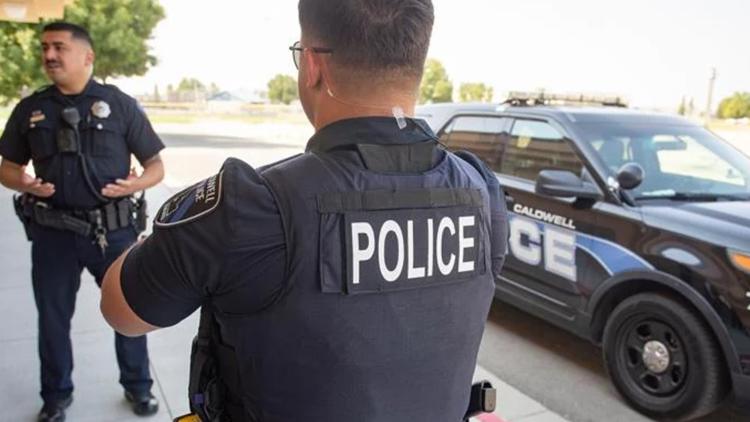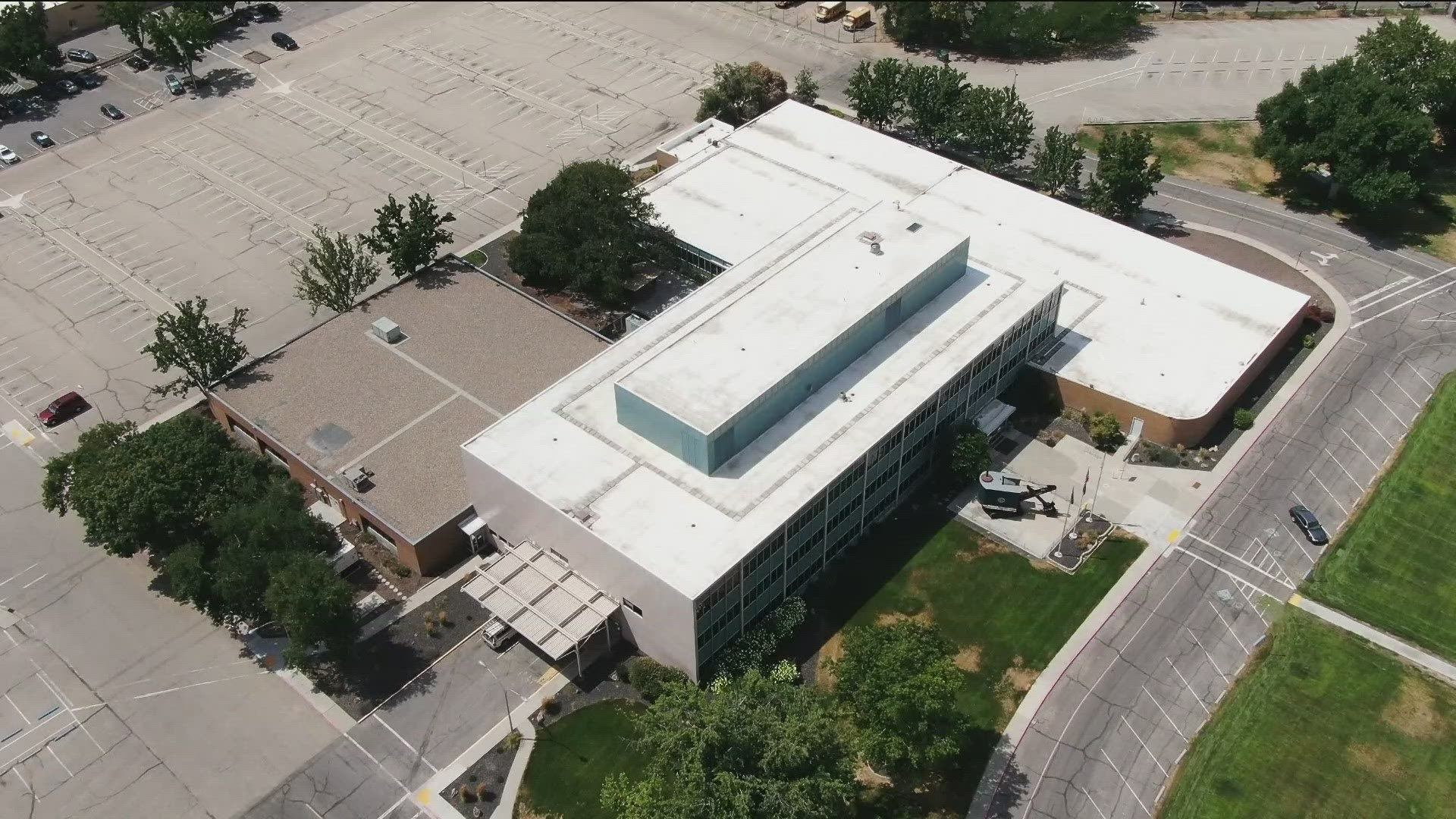CALDWELL, Idaho — This article originally appeared in the Idaho Press.
Among major changes coming in the 2024-2025 academic year, the Caldwell School District will be cutting school resources officers from its budget.
This is another decision made due to the failed renewal of a $4.1 million supplemental levy in the May 21 primary election. This summer, the CSD also moved to close an elementary school and implement costs for student sports.
Without levy funds, the district will no longer be able to afford its $300,000 school resource officer contract with the Caldwell Police Department.
The district will seek federal grants to afford the $300,000 contract, but for now, will not have SROs at schools. The contract renewal would have kept four officers at CSD schools throughout the academic year.
CSD Director of Communications Jessica Watts said the district is in the process of applying for a state grant that would cover the cost of one SRO for three years. If received, the CSD could unfreeze one SRO position as early as the fall.
“It’s a high priority for our district,” Watts said.
In addition to the SRO cuts, the school district has reduced its number of safe school aides from eight to four.
Safe school aides work under the supervision of CSD’s safety director. While there is no specified background required for the role, aides participate in trainings and earn certifications.
According to Watts, the four aides will continue to work with the safety director to review district policies and discuss emergency procedures.
The CSD’s four SROs were each in charge of multiple schools.
“The expectation is, if there is an incident or there is a need for them at their assigned school, that they are available,” CPD Deputy Chief Shawn Sopoaga said.
Sopoaga said the district paid a significant part of the SROs’ salaries.
“It’s really coming down to funding, resources and allocating, so we weren’t able to come to a negotiation,” he said.
For now, the police department is freezing the positions and the SROs are being placed on patrol duty. Sopoaga said the department would not be abandoning Caldwell’s schools
While the four SRO positions will not be staffed, Caldwell’s SRO sergeant will continue to make rounds at the CSD’s schools.
The SRO sergeant oversees all the SROs and is paid for by the city. This role also manages security in the Vallivue School District and at some charter schools.
Where Sopoaga previously worked in California, there were fewer SROs in schools. Coming to Idaho, he was initially surprised to see so many. He believes this prominence has benefited the community.
Sopoaga recalled instances where juveniles were causing issues during the summer. When the SRO that worked at their school showed up, they were able to talk and resolve the issue.
“It’s really the interaction every day, humanizing the badge to the youth,” Sopoaga said. “... Through that, we have built a lot of community trust.”
During a summer stop-by at Thomas Jefferson Charter School, SRO Servando Contreras was welcomed with open arms, hugging staff members in the lobby.
Contreras became Thomas Jefferson’s first-ever SRO last year. The charter school’s contract with the CPD was renewed for another year despite hesitations due to cost. As a charter school, Thomas Jefferson is separate from the CSD.
A full-circle moment for Contreras was when he met his former SRO at a conference.
“It may change people’s lives, believe it or not, and I want to be part of that,” Contreras said.
SRO Sgt. Myron Kershaw greeted students sitting in the lobby as he entered Thomas Jefferson. Kershaw previously worked as a Caldwell SRO in the ‘90s and has since returned as sergeant. Initially, Kershaw was surprised to see familiar faces.
“I’ve been on calls and they remember me as their school resource officer in Caldwell High School and also in the grade school,” he said.
Kershaw has now overseen the children of his former students, building a generational bond.
“We’ve been to their homes, we know their family, we know their history,” Contreras said. “And that’s something — that connection — the teacher wouldn’t really know.”
In their day-to-day work, SROs often advise staff on how to improve safety around their school. At Thomas Jefferson, the CPD recommended that the school add fencing on its perimeter. Contreras has also discussed emergency plans and updated technology with school administration.


As word has spread of SROs not returning to the CSD, Contreras said they have heard from disappointed students.
“They’re like, ‘We really need an SRO,’ and the ones who say that are the kids who are the ones always getting in trouble,” he said. “They’re in need of a role model.”
Kershaw said students are often apprehensive when an SRO first starts at their school, but quickly warm up to officers. Eventually, students are asking for high-fives and inviting them out to recess.
“We try to eat with them, we try to sit down with them...so kids feel comfortable to talk,” Kershaw said.
While officers will not be assigned to the CSD, Kershaw will continue to work with schools as sergeant.
Sopoaga said an adjustment for schools will be the lack of direct contact with the CPD. Rather than being able to lean on their SROs for guidance, schools will have to call the police.
“We’re at a place where our city continues to grow, and our staffing levels could be better — but they are what they are,” he said.
Sopoaga said the CPD is in a tough spot but hopes SROs are able to return in the future. Ultimately, the SRO freeze was decided due to the failed levy.
“There is a part that (school districts) play in helping to ensure that the funding to have SROs in schools is there,” Sopoaga said. “... I do believe in people having the right to vote, but if the parents are concerned, the biggest issue here is being able to fund to have SROs at the schools.”
This article originally appeared in the Idaho Press, read more on IdahoPress.com.



